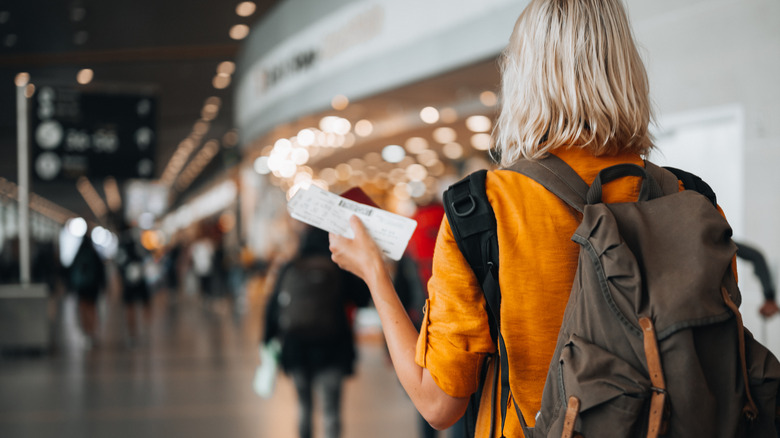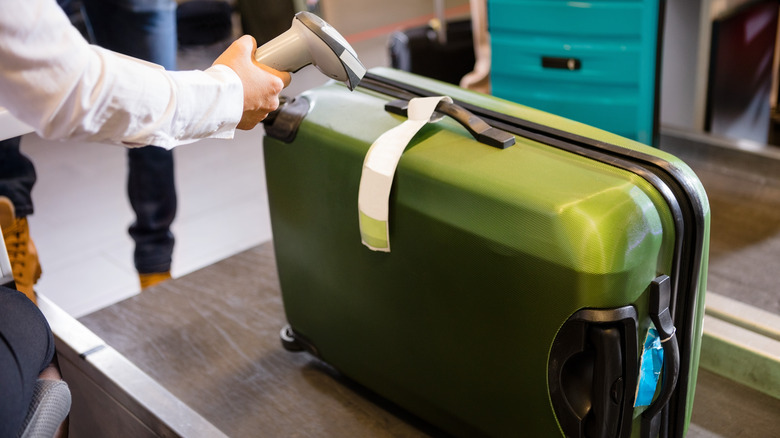Why You'll Want To Know Your Airport Code Before Your Day Of Travel
Have you ever paid close attention to airport codes? You'll find them on your airplane boarding pass, and also on the luggage tag that's placed on your checked suitcase. When it comes to luggage, the code allows baggage handlers to direct your bag to its proper destination. On your ticket, it makes sure you're heading to the right airport (especially when certain cities have more than one airport). They are three-letter codes that are mostly drawn from the name of the city to which you're travelling. For example, because London, UK has six airports, their airport codes are named after neighbourhoods, so LHR is London Heathrow and LGW is London Gatwick. Sometimes, the codes reflect the name of the airport instead, like Paris's Charles de Gaulle airport code is CDG, and New York's John F. Kennedy airport code is JFK.
However, some destinations have rather odd airport codes. For example, Toronto's international airport code is YYZ! In fact, almost all airport codes in Canada start with Y, and some of them are real head-scratchers. Montreal is YUL. Vancouver is YVR, and this is "Y" Canadian airport codes are the butt of jokes amongst Canadian Twitter users — so why should you pay attention to the airport codes on your ticket and luggage? Imagine flying to Toronto, with your ticket's airport code reasonably reading TOR, and you end up in Torrington, Wyoming! Here's how that mistake happens, and why you should double check.
Mistakes could send you to the wrong destination
While a lot of people might prefer to book their own travel using online platforms, there are still many people and corporations who use travel agents — and mistakes can happen. Travel writer Christopher Elliot reported for CNN about several travellers who encountered issues when their travel agent mistakenly typed in the wrong airport codes, sending vacationers to Sydney, Nova Scotia instead of Sydney, Australia — huge difference! Elliot also reported on improper luggage tags fastened by the check-in desk clerk to checked bags, which caused one Edinburgh-bound traveler to discover the check-in desk sent their luggage to Glasgow! Not only should you double check your airport codes for travel booked by a travel agent, but you should triple-check when you arrive at the check-in desk to make sure your luggage doesn't get lost.
Airlines are also likely to lose your luggage or send it to the wrong destination if you haven't removed all of your old luggage tags from previous flights. Those old tags contain airport codes, which could confuse baggage handlers tasked with directing your bag to its proper destination. You definitely don't want an old luggage tag from two years ago resulting in your suitcase to be sent to Abu Dhabi when you need it in Amsterdam. Luckily, discovering your destination's airport code is super easy with a quick Google search, and confirming with your airline.

